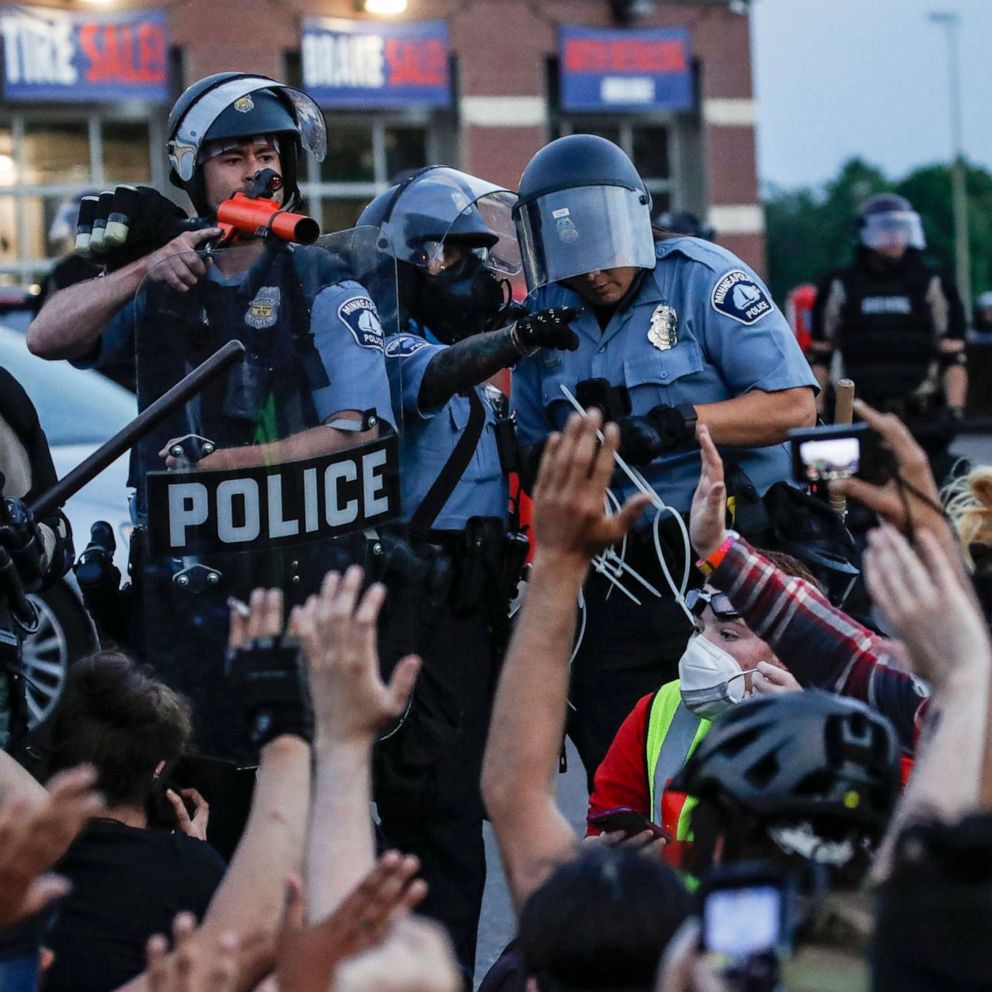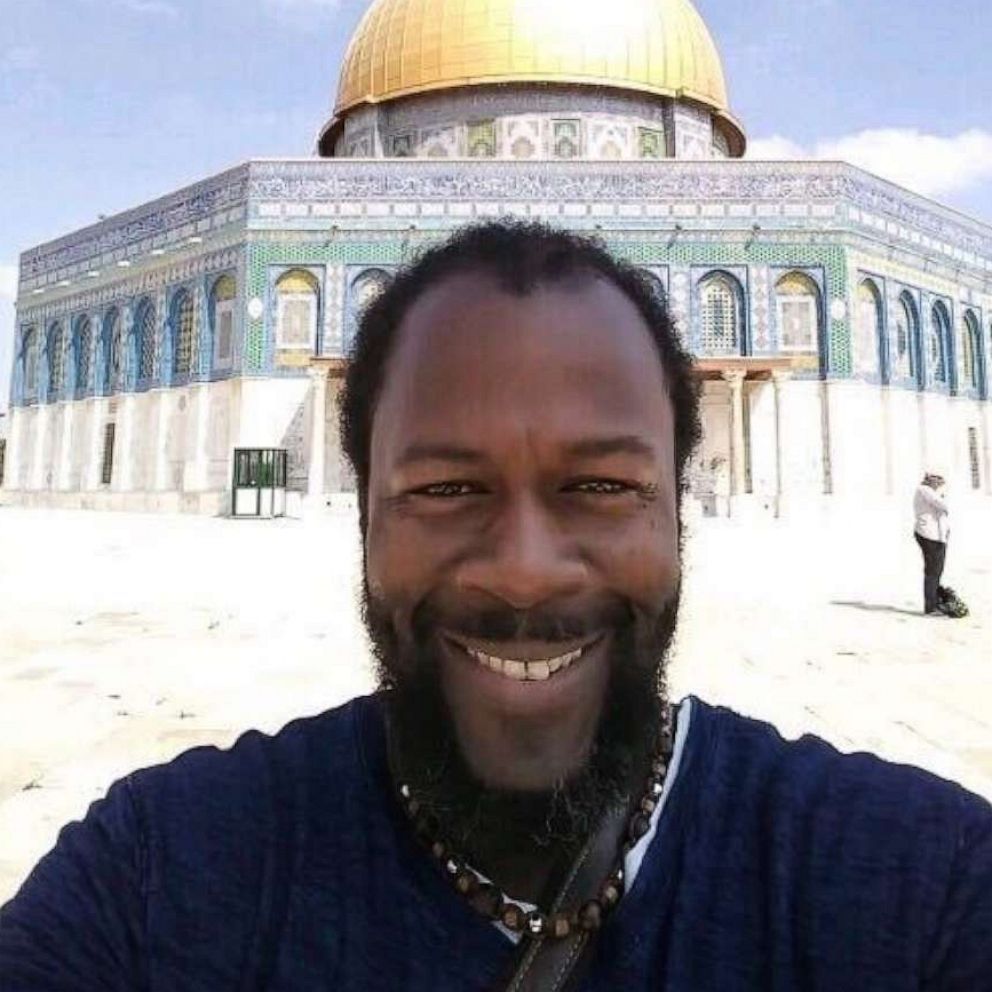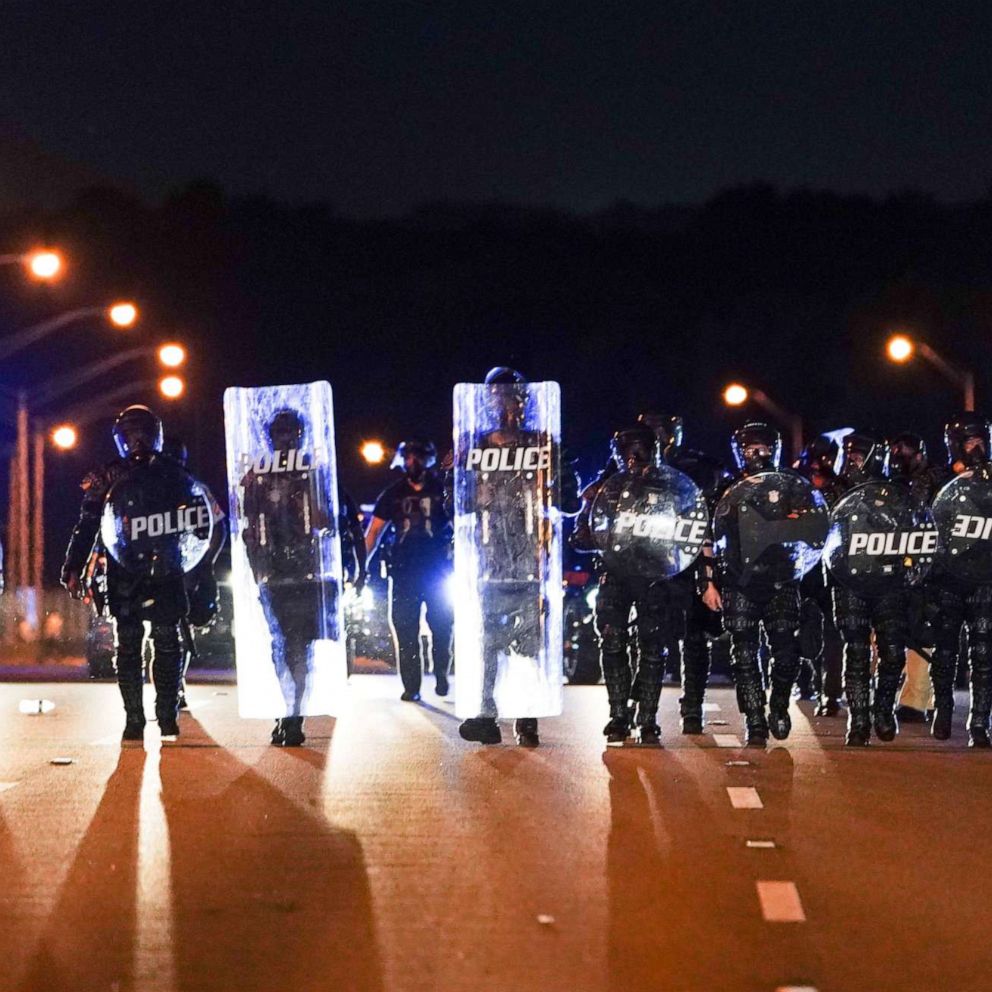Trump signs executive order to reform policing, encourages ban on chokeholds
The Rose Garden ceremony comes three weeks after the death of George Floyd.
Under pressure to take action in the wake of the death of George Floyd at the hands of Minneapolis police, President Donald Trump on Tuesday signed an executive order aimed at encouraging police departments across the country to adopt stricter standards on the use of force.
The president announced that his order calls for police departments to adopt bans on chokeholds, with an exception for when the officer's life is at risk.
"As part of this new credentialing process, chokeholds will be banned, except if an officer's life is at risk. And I will say, we've dealt with all of the various departments and everybody said 'it's time,'" Trump said of the order.
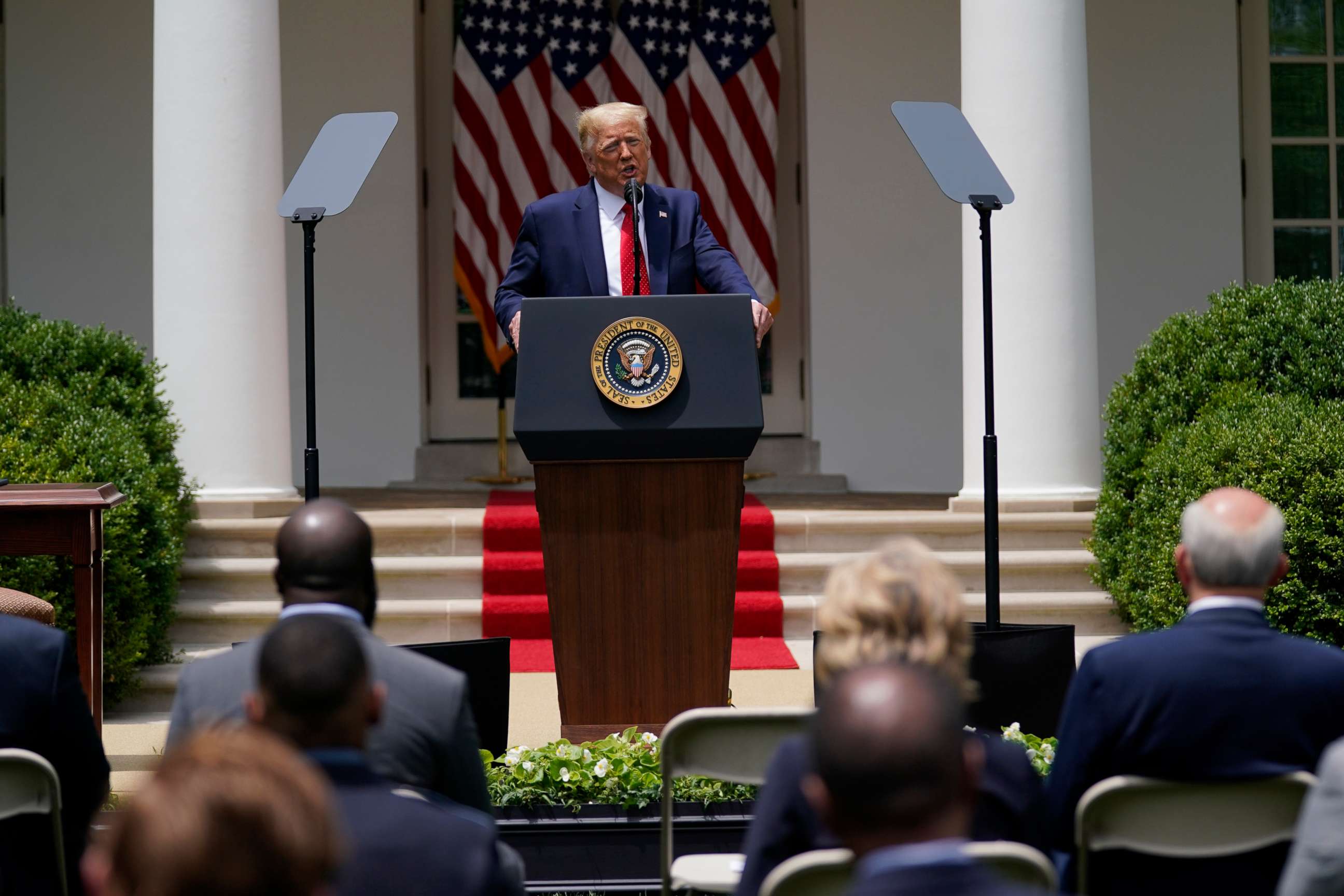
The order also calls for the creation of a database for police departments to share information on officers with a history of misconduct to prevent those officers from easily moving between different departments. It also encourages the use of so-called co-responders, like social workers and individuals trained in mental health issues, to respond to non-violent calls. The order does not directly address race.
John Cohen, an ABC News contributor with a background in law enforcement, was critical of the order and said it does little to actually bring about reform, since policing authority lies at the state and local levels.
"Through a presidential executive order, the president has the ability to direct federal government agencies and federal government personnel to take certain actions," Cohen said. "A presidential executive action has little impact on the day-to-day operations on state and local law enforcement agencies."
Speaking in the White House Rose Garden as he unveiled the order, the president surrounded himself with law enforcement officials and framed his reform remarks with strong talk of law and order and defending police.
"Americans want law and order. They demand law and order," he said. "They may not say it. They may not be talking about it, but that's what they want. Some of them don't even know that's what they want, but that's what they want.
"And they understand that when you remove the police, you hurt those that have the least the most," he continued. "Nobody needs a strong trustworthy police force more than those who live in distressed areas and nobody is more opposed to the small number of bad police officers and you have them. They're very tiny. I use the word "tiny." It's a very small percentage but you have them."
"We have to find common ground, but I strongly oppose the radical and dangerous efforts to defend, dismantle and dissolve our police departments, especially now when we've achieved the lowest recorded crime rates in recent history. Americans know the truth. Without police, there's chaos. Without law, there's anarchy and without safety, there's catastrophe," he said.
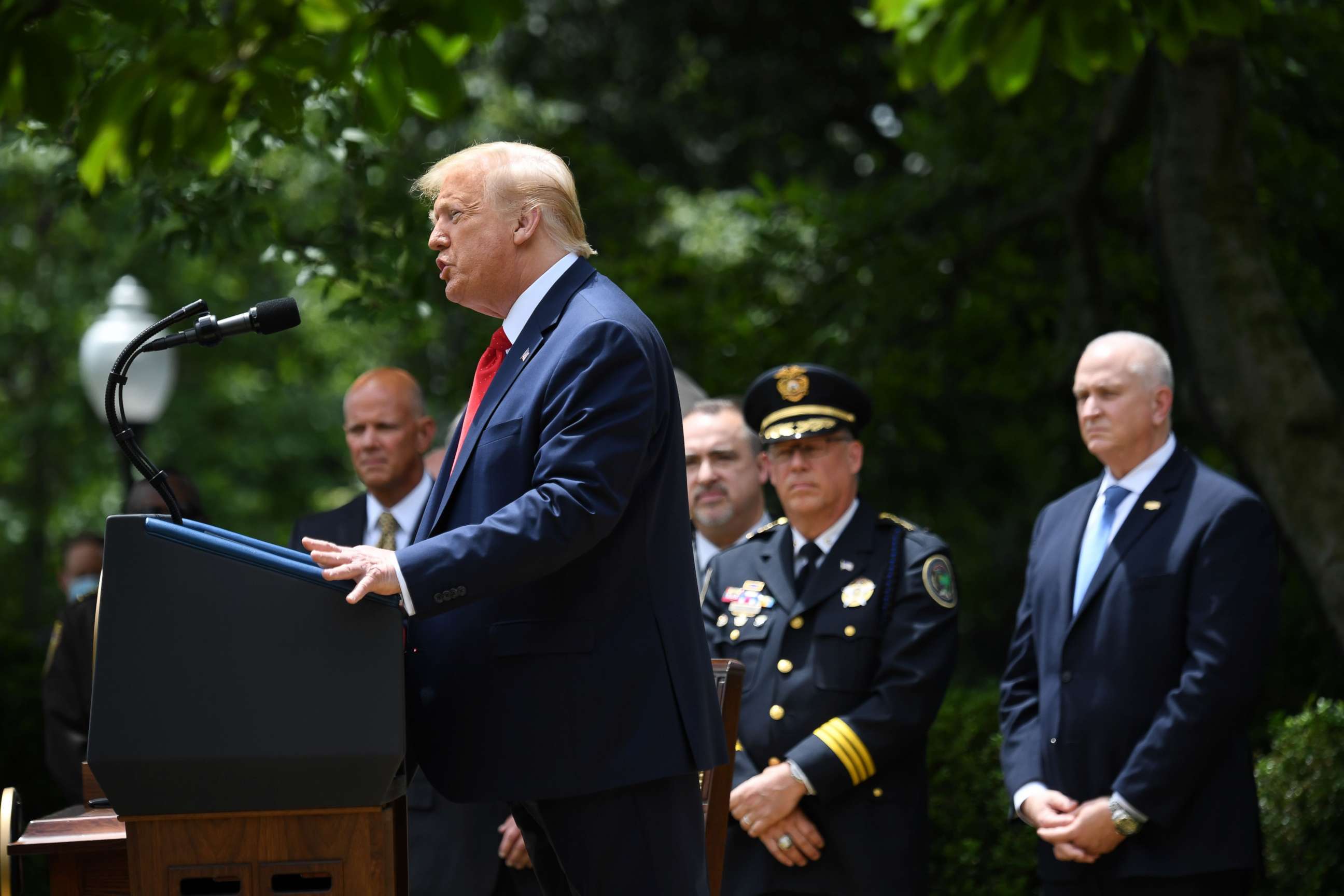
Trump began by saying he'd just met with what he called some "incredible" family members of individuals who have died in encounters with police and corrections officers or in racially-charged circumstances. The president offered words of consolation and a promise to "fight for justice" for those families before singing the order.
The president said he met with members of the families of Ahmaud Arbery, Botham Jean, Antoine Rose, Jamel Roberson, Atatiana Jefferson, Michael Dean, Darius Tarver, Cameron Lamb, and Everett Palmer.
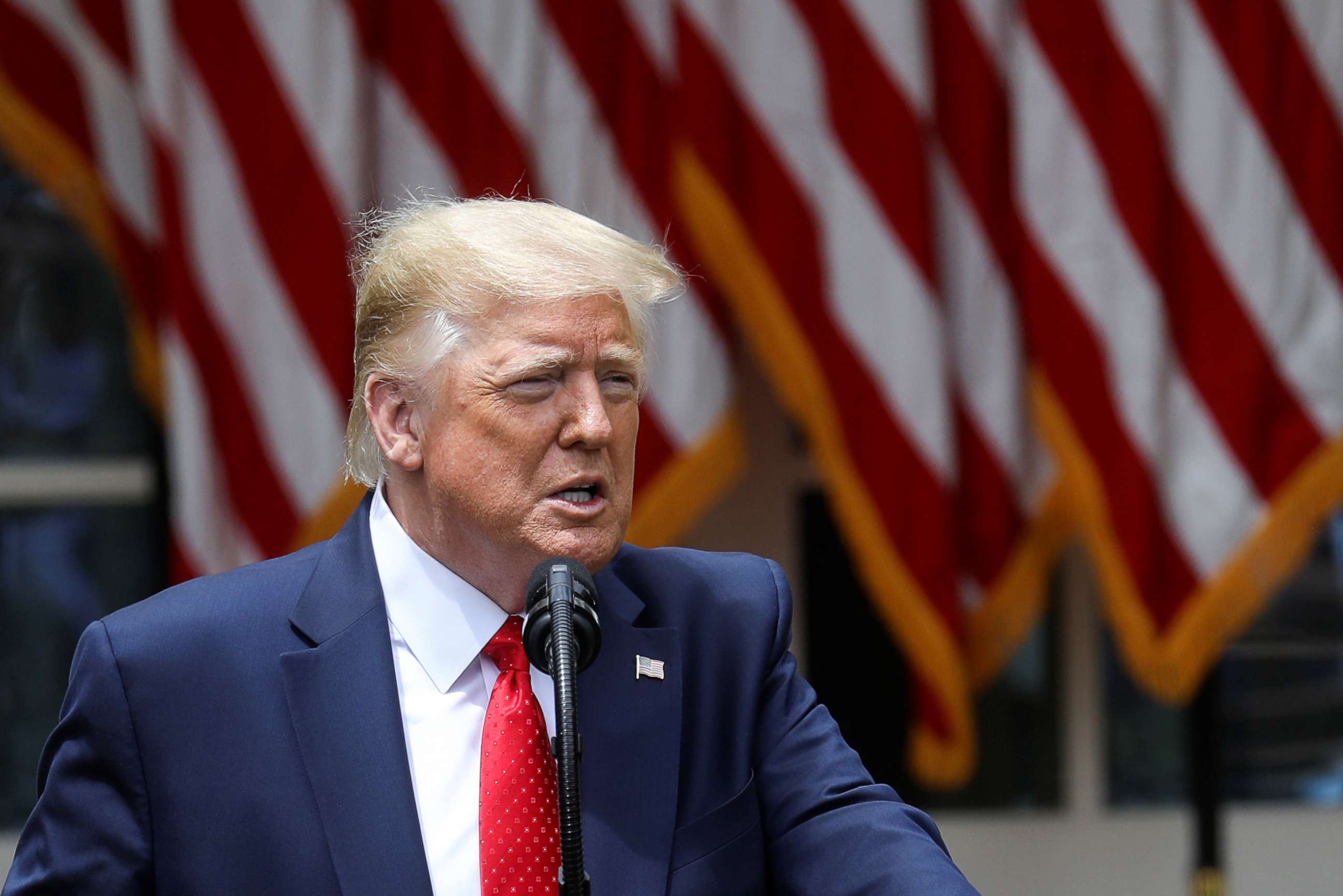
"To all of the hurting families, I want you to know that all Americans mourn by your side," Trump said. "Your loved ones will not have died in vain. We're one nation, we grieve together and we heal together. I can never imagine your pain or the depth of your anguish. I can promise to fight for justice for all of our people," he said.
The president said he gave the families a commitment to work toward reform, referencing Sen. Tim Scott, the Senate's sole African American Republican who is leading the GOP's legislative effort.
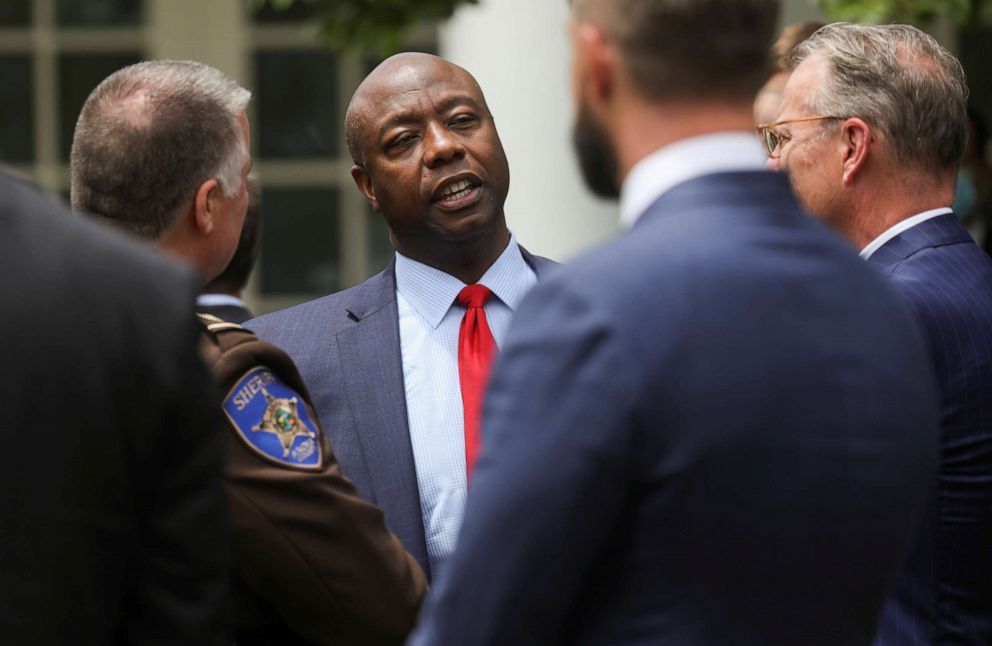
"I gave a commitment to all of those families today with Sen. Tim Scott, Attorney General Bill Barr. We are going to pursue what we said we will be pursuing and we will be pursuing it strongly," Trump said.
White House Press Secretary Kayleigh McEnany described the meeting as "very emotional" and said there were "a lot of tears."
"There were a lot of tears, there was a lot of emotion, and the president was devastated," McEnany told reporters later in the day. "I was just in the Oval Office with him before I walked out, he said to me, 'These are devastating stories. I love these families, and I will be helping these families. So he took it deeply personally. It's very productive meeting, a solutions oriented meeting."
The White House did not reveal the names of the family members who met with the president and they did not join the president on the podium when he signed his executive order. The White House said it was a "mutual decision."
"It was a mutual decision because it wouldn't really wasn't about doing a photo opportunity, we wanted the opportunity to really hear from the families and protect them," White House aide Ja'Ron Smith said. "It was personal."
President Trump offered his clearest endorsement of efforts to seek legislative reform, beyond his executive order.
"Beyond the steps we're taking today, I am committed to working with Congress on additional measures," Trump said. "And hopefully they'll all get together, they'll come up with a solution that goes even beyond what we're signing today, but this is a big, big step."
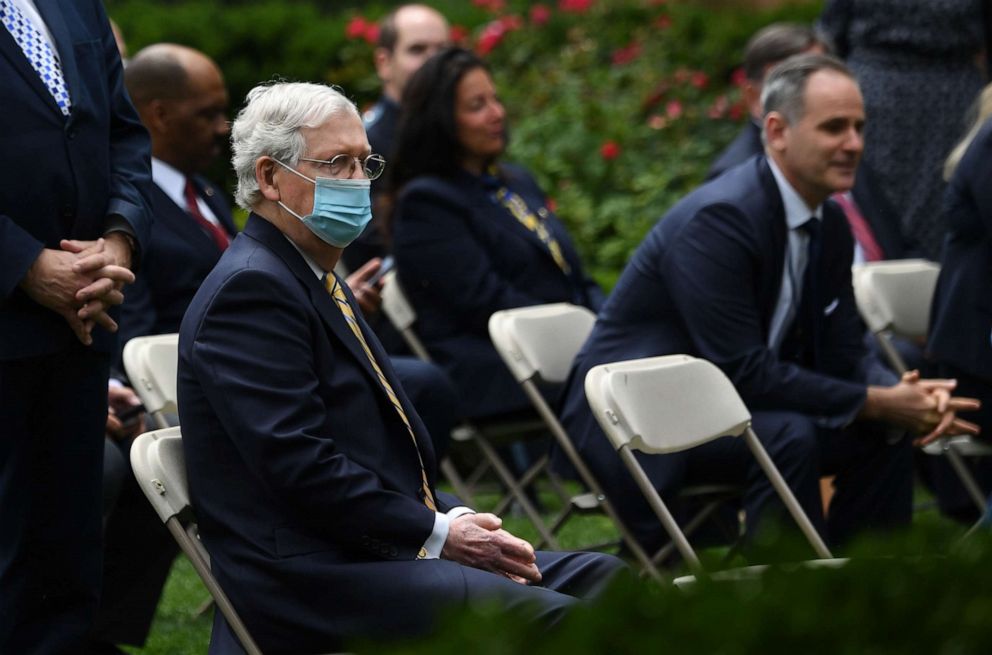
As he now expresses support for reforming the nation's policing system, the president falsely accused the prior administration of not even attempting to bring about change.
"President Obama and Vice President Biden never even tried to fix this during their eight-year period. The reason they didn't try is because they had no idea how to do it. And it is a complex situation," Trump said.
But the prior administration did set about seeking reforms. President Obama set up a "21st Century Policing" task force to develop recommendations for police departments with the recommendation that "Law enforcement culture should embrace a guardian -- rather than a warrior -- mindset to build trust and legitimacy both within agencies and with the public."
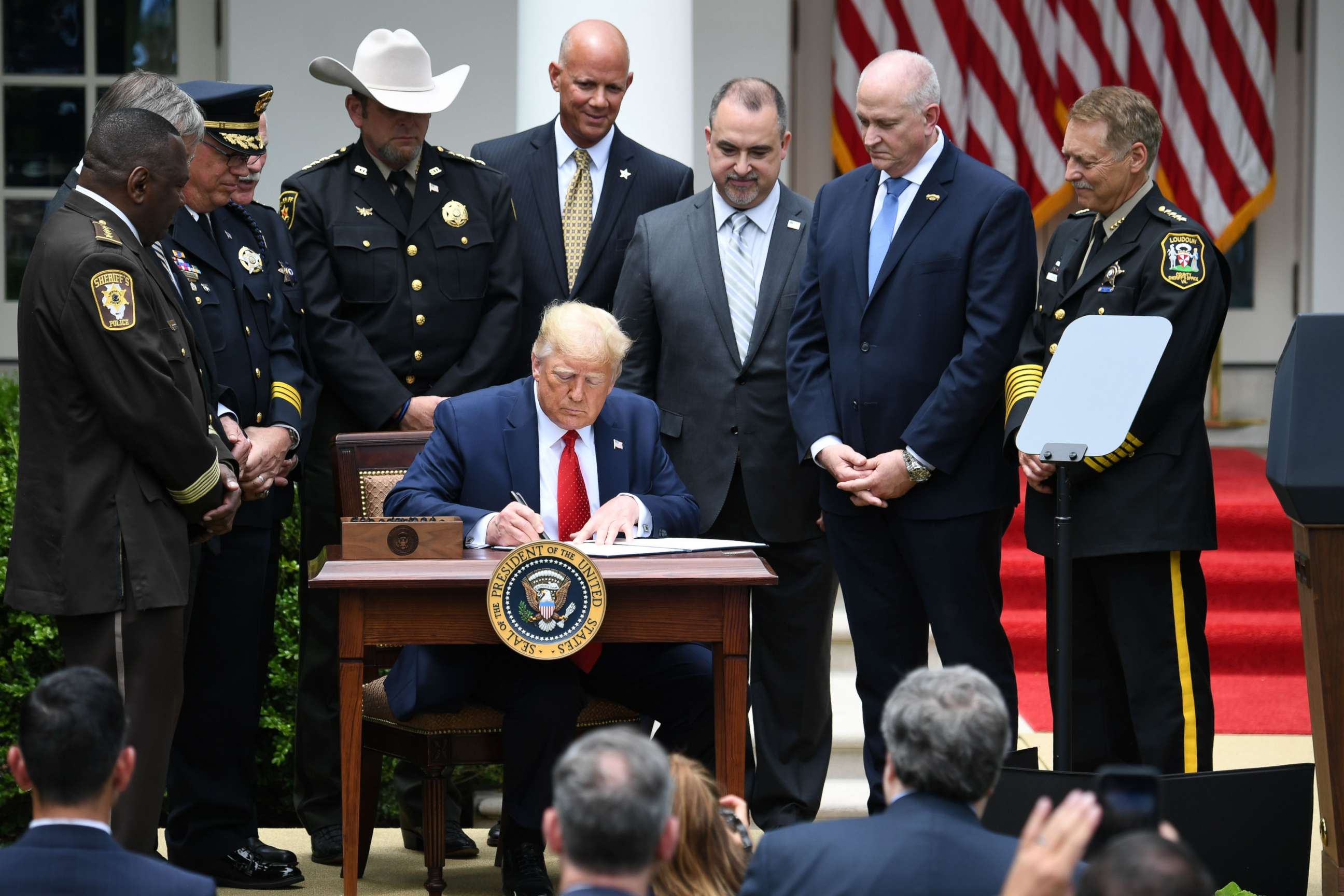
This report was featured in the Wednesday, June 17, 2020, episode of “Start Here,” ABC News’ daily news podcast.
"Start Here" offers a straightforward look at the day's top stories in 20 minutes. Listen for free every weekday on Apple Podcasts, Google Podcasts, Spotify, the ABC News app or wherever you get your podcasts.
